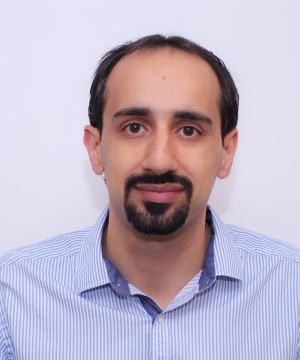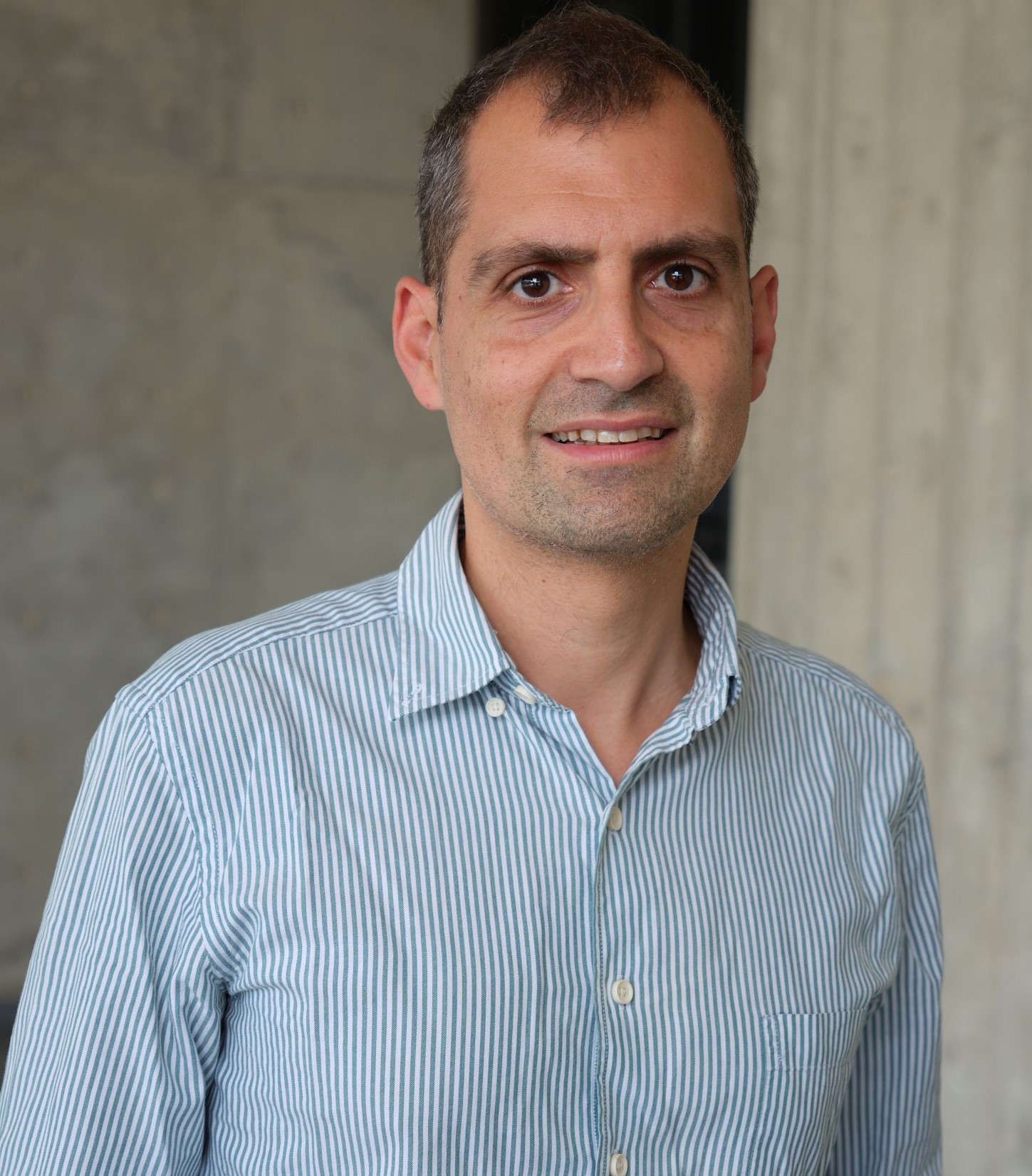Keynote Speakers

Prof. Herodotos Herodotou
Cyprus University of Technology
Title: Towards a Hybrid Cloud & Edge Orchestrator for Mining Exascale Distributed Streams
Abstract: The explosive increase in volume, velocity, variety, and veracity of data generated by distributed and heterogeneous nodes such as IoT and other devices, continuously challenge the state of art in big data processing platforms and mining techniques. Consequently, it reveals an urgent need to address the ever-growing gap between this expected exascale data generation and the extraction of insights from these data. To address this need, this talk first reviews the current state of art in big data stream processing, cloud resource management and tuning, stream processing at the edge, machine and deep learning on data streams, and data transformation techniques. Next, this talk presents a general architecture design for Stream to Cloud & Edge (S2CE), an optimized, multi-cloud and edge orchestrator, easily configurable, scalable, and extensible. S2CE will enable machine and deep learning over voluminous and heterogeneous data streams running on hybrid cloud and edge settings, while offering the necessary functionalities for practical and scalable processing: data fusion and preprocessing, sampling and synthetic stream generation, cloud and edge smart resource management, and distributed processing.
Bio: Dr. Herodotos Herodotou is an Assistant Professor in the Department of Electrical Engineering and Computer Engineering and Informatics at the Cyprus University of Technology, where he is leading the Data Intensive Computing Research Lab. He received his Ph.D. in Computer Science from Duke University in May 2012. His Ph.D. dissertation work received the ACM SIGMOD Jim Gray Doctoral Dissertation Award Honorable Mention as well as the Outstanding Ph.D. Dissertation Award in Computer Science at Duke. Before joining CUT, he held research positions at Microsoft Research, Yahoo! Labs, and Aster Data as well as software engineering positions at Microsoft and RWD Technologies. His research interests are in large-scale Data Processing Systems, Database Systems, and Cloud Computing. In particular, his work focuses on ease-of-use, manageability, and automated tuning of both centralized and distributed data-intensive computing systems. In addition, he is interested in applying database techniques in other areas like maritime informatics, scientific computing, bioinformatics, and social computing. His research work to date has been published in several top scientific conferences and journals (e.g., PVLDB, SIGMOD, SoCC, CIDR), two books, and two book chapters.

Prof. George Pallis
University of Cyprus
Title: Data Stream Processing at the Edge
Abstract: With the rapid integration of massive amounts of data and proliferation of new devices (e.g., smart mobile devices, drones, Internet-of-Things (IoT), etc.), today’s network system infrastructures are being stretched to their limits. Although edge computing brings the computation closer to both delay-sensitive services and interested users, the challenges restricting the cloud model still remain. In addition, as the plethora of data generated across connected devices continues to vastly increase, the need to query the “edge” so as to derive in-time analytic insights is more evident than ever. In this talk, I will present three novel adaptive monitoring frameworks and a fog computing emulation framework. First, I will present the AdaM framework, which dynamically adjusts the monitoring intensity and the amount of data disseminated through the network based on a runtime estimation model capturing the current data evolution and variability. By accomplishing this, energy consumption and data volume are reduced, allowing IoT devices to preserve battery and ease processing at data consuming services, while still preserving accuracy. Then, I will present the ADMin framework. Rather than transmitting the entire stream, ADMin favors sending updates for its estimation model from which values can be inferred, triggering dissemination only when shifts in the stream evolution are detected. This is achieved by efficiently adapting the rate at which IoT devices disseminate monitoring streams based on run-time knowledge of the stream evolution, variability and seasonal behavior. The third framework that I will present is called ATMoN and focuses on dynamic networks. Specifically, ATMoN framework dynamically adjusts the temporal granularity graph metrics which are computed based on runtime knowledge captured by a low-cost probabilistic learning model approximating both the metric stream evolution and the runtime volatility of the graph topology. This computationally offloads graph processing engines and eases the communication overhead in edge computing networks where the wealth of data dissemination is plentiful. Next, I will present Fogify, an emulator easing the modeling, deployment and large-scale experimentation of fog and edge testbeds. Fogify provides a toolset to: model complex fog topologies comprised of heterogeneous resources, network capabilities and QoS criteria; deploy the modelled configuration and services using popular containerized descriptions to a cloud or local environment; experiment, measure and evaluate the deployment by injecting faults and adapting the configuration at runtime to test different “what-if” scenarios that reveal the limitations of a service before introduced to the public.
Bio: George Pallis is Associate Professor at the Computer Science Department. Dr. Pallis received his BSc (2001) and Ph.D. (2006) degree in Department of Informatics of Aristotle University of Thessaloniki (Greece). His research interests include Cloud computing with focus on Cloud elasticity and monitoring, Edge Computing and Big Data Analytics. He is principal institutional investigator in research projects funded by EC, Research Promotion Foundation in Cyprus, and industry (e.g., Google) and has totally attracted more than 5.5M EUR. Dr. Pallis was one of the contributing experts for the EU Roadmap for Advanced Cloud Technologies under H2020. Dr. Pallis has published over 80 papers in international journals (e.g., IEEE TKDE, IEEE TCC, IEEE TSC, ACM TOIT etc), magazines (e.g., CACM, IEEE Internet Computing) and conferences (e.g., INFOCOM, IPDPS, ICDCS, IEEE BIG DATA etc) and he is contributor of two international DIN (German Institute for Standardization) standards. Also, he has served as PC-Co-chair of CloudCom 2018 and CCGrid 2019. Dr. Pallis has also served in numerous Program and Organization Committees for international conferences, and he received the best paper awards in the IoTDI 2022, IEEE BIG DATA 2016 and the ICSOC 2014 and the best demo award in the ACM/IEEE Symposium on Edge Computing (SEC 2020). In 2019, Dr. Pallis served as guest editor for the edge computing special issue on the prestigious Proceedings of the IEEE journal. Dr Pallis appeared in the World’s Top 2% Scientists list published by Stanford University. He is Editor in Chief in the IEEE Internet Computing magazine, Associate Editor in the IEEE Transactions on Cloud Computing and Associate Editor in the Computing Journal (Springer).
